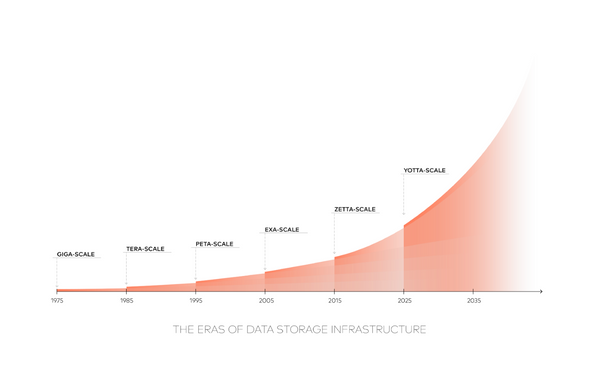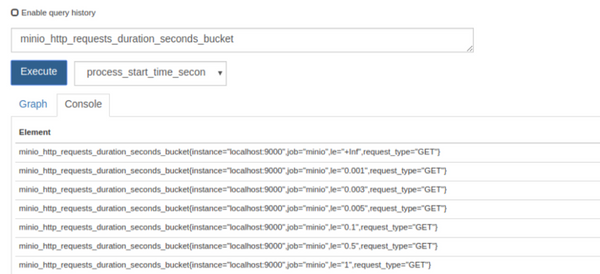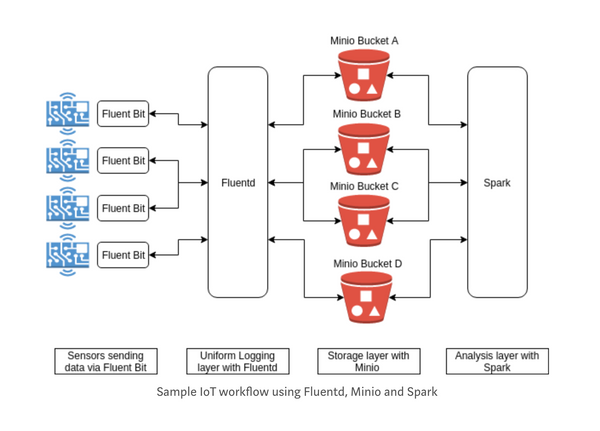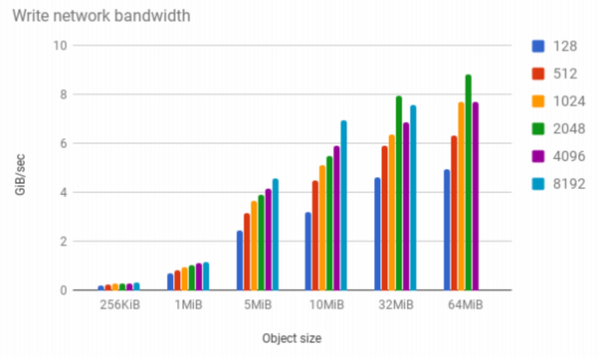Synopsis: A violation of the SSE-C security guarantees was discovered and has
been fixed in RELEASE.2018–07–10T01–42–11Z
[https://github.com/minio/minio/releases/tag/RELEASE.2018-07-10T01-42-11Z].
Severity: Low
Who is affected: All users who stored objects using the S3 SSE-C API and used
the same client-provided key at least twice for different objects.
Recommended Action for
Read more
Synopsis: A Denial-of-Service (DoS) vulnerability against the Minio server was
discovered and has been fixed in RELEASE.2018–05–25T19–49–13Z
[https://github.com/minio/minio/tree/RELEASE.2018-05-25T19-49-13Z]
Severity: Medium
Who is affected: All users of the signature V4 authentication are affected.
Users of the signature V2 authentication are not affected.
Recommended Action for Users: All users are
Read more

In 1994, EMC’s Symmetrix set an industry high-water mark with its max capacity
of 1TB (TeraByte) for an enterprise storage system. In 2016, NetApp introduced
the FAS9000 which in a 24-node cluster config holds about 172PB (PetaByte) raw.
Increasing by 172,000x after 22 years — while dramatically improving performance
and adding dozens of wonderful features — is decidedly impressive. But
Read more
Fixed possibility of authentication bypass against MinIO server Admin API
Read more
Some our community members have repeatedly asked for Backblaze B2 Cloud Storage
and MinIO integration [1] [https://github.com/minio/minio/issues/4072] . B2 is
competitively priced and has a huge fan following. We also heard from Backblaze
team that they are actively expanding their B2 cloud storage service. We added
experimental support for Backblaze B2 backend in MinIO to
Read more
Introduction
Encrypting network traffic is becoming the default. There are standardized protocols like SSH and TLS as well as projects like Let’s Encrypt to protect data sent over the network. TLS for example takes a data stream, chunks the stream into messages and encrypts every message before sending it through the network. TLS ensures that each message is encrypted
Read more
You may know that Golang offers the ability to name return values. Thus far at
MinIO [https://github.com/minio/minio] we have not been using this feature
much, but that’ll change since there are some nice hidden benefits as we will
explain in this blog post.
If you are like us, you may have considerable amounts of code
Read more
Maybe if you are like us at Min [https://github.com/minio/minio]IO, you have
every now and then come across ‘autogenerated’ functions in your Golang call
stacks and wondered what they are all about?
We had a case the other day where the call stack showed something like the
following:
cmd.retryStorage.ListDir(0x12847c0, 0xc420402e70, 0x1, ...)
minio/cmd/
Read more
Today we’ll take a look at an IoT pressure gauge for your MinIO server. This is
a cool hack built by Alex Ellis with the Raspberry Pi, Docker and MinIO.
> After contributing code to the Open-Source MinIO project to enable webhooks Alex
wanted visualize the traffic passing through his server. His hack shows the rate
that objects get
Read more
Containers running on orchestration platforms like Kubernetes, Docker Swarm,
DC/OS et al. offer powerful, versatile ways to deploy applications. Containers
let you deploy isolated application instances, and you can launch multiple such
instances to scale up your load serving capacity. You don’t even need to worry
about individual server capacities and scheduling thanks to orchestration tool,
which provide
Read more
This is a guest blog from our friends at Guardant Health
[http://www.guardanthealth.com/].
Guardant Health is the world leader in comprehensive liquid biopsy. Oncologists
order our blood test to help determine if their advanced cancer patients are
eligible for certain drugs that target specific genomic alterations in tumour
DNA. Each test produces huge amounts of genomic data that
Read more
ToolsLib recently switched to a brand new dashboard
[https://toolslib.net/blog/viewpost/2017/02/28/54-welcome-new-dashboard/].
However, behind the scenes, there was another switch happening. We used block
based filesystem for underlying storage. However, as we grew, the filesystem was
proving difficult to scale.
So, we were looking to move from block based storage to an object store system,
Read more
Harbor is an enterprise-class docker registry server to store and distribute container images. Follow this document to use MinIO object storage server as a storage backend for Harbor container registry.
Prerequisites
Install and run MinIO server
docker run -p 9000:9000 --name minio \
-e "MINIO_ACCESS_KEY=minio" \
-e "MINIO_SECRET_KEY=minio123" \
-v /mnt/minio/
Read more
Container orchestration is gaining traction as the default way to deploy applications. Developers are architecting their modern applications from the ground-up to run in containers, which enables faster deployment and more resilience. Even legacy applications are adopting containers in every way they can to access these advantages.
Of the many characteristics that make an application container ready, the way it
Read more










